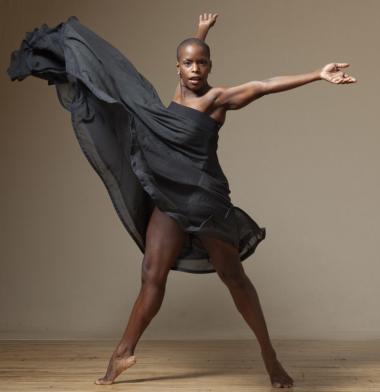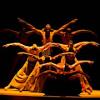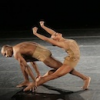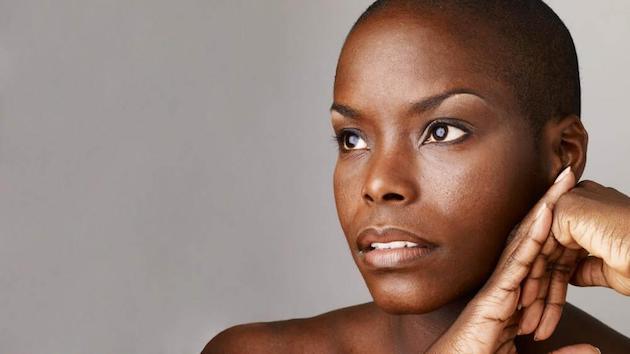
Wade in the water,
Wade in the water, children
Wade in the water,
Nothing’s gonna trouble the water
Dancers dressed in white walked forward, rocked back, moved to the right, to the left, turned in a circle and turned again, following their leader, Hope Boykin, as they learned a passage from Revelations, Alvin Ailey’s masterwork, which he created in 1960, when he was 29 years old, for his nascent dance company.
It was no ordinary rehearsal for no ordinary time. George Floyd had just been killed in Minneapolis; the COVID-19 pandemic was thriving; and this rehearsal had been transplanted from the plaza in front of Zellerbach Hall at UC Berkeley, where, in May, the Alvin Ailey American Dance Theater’s long-anticipated annual residency at Cal Performances had been canceled.
Teaching a passage from Revelations each year to anyone in the community who’d like to learn it is as much of a time-honored tradition as Ailey Camp, a national summer outreach program at cities on the company’s itineraries, combining traditional day camp and dance for children, many of whom are experiencing dance for the first time.
So now it was mid-June. The dancers were scattered across the country, each in a little box on a screen, and the teaching was on Zoom. Boykin was dancing in the living room of her apartment in Harlem, New York City, mixing the steps and the gestures with words of encouragement and a demeanor of joyous concentration. That day’s class was recorded, and will be on YouTube in August.
Boykin’s students were in their kitchens, their back yards, their hallways. Some had never danced before, and some had danced with Boykin. The Berkeley engagement would have been her farewell to the company where she’d danced for 20 years. Time and a knee injury had had their way, and Boykin, 48, had been anticipating a classic dance-world leavetaking, on the big Zellerbach stage, with a packed house, bouquets, cheers and tears, sharing the warmth with her friends and colleagues, including Akua Noni Parker and Danica Paulos, dancers who are also leaving the company. Instead, the festivities were — yes — on Zoom, complete with toasts and rejoicing and “ugly crying,” said Boykin, laughing at the memory.
Hope Boykin grew up in Durham, North Carolina. “When I wake up every day, I never have to question that my life matters,” she said. “I look into the mirror and say, ‘I love you! Good morning, glorious person.’ And I know that our world is a world that my mother fought to change as she sat in at lunch counters,” as a young woman in the 1950s. “And that there are people today that won’t give the same weight to the struggle — that is amazing!”
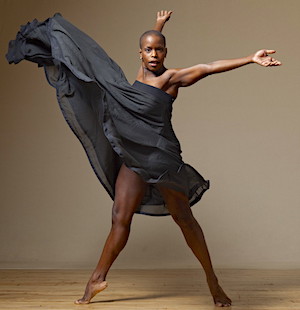
Boykin entered Howard University intending to become a psychologist. But she became involved with a university dance group. She persuaded her mother to let her spend the summer at the Alvin Ailey school in New York City, just to get it out of her system. She stayed. “I never looked back,” she said, a smile in her voice.
Now Boykin is at the other end of that career, a passage that’s included leading outreach work for schools in Boston and Chicago, cocreating three works for the company, and dancing all over the world, even though, she said, sometimes she felt every bit of “the physicality, the pain,” the not wanting to get on one more flight.
But now she’s looking ahead. She’s making dances, like the one for Lauren Lovette, a New York City Ballet principal, at last summer’s Vail Dance Festival. And she’s transfiguring, becoming a dancer and a poet; a choreographer and a writer; a dancer and a poet and a choreographer and filmmaker, complete with her own video kit. In mid-June, her choreography was part of Virtual Works and Process, Ballet X. She’s the artistic lead of the Dance Lab at the Kennedy Center.
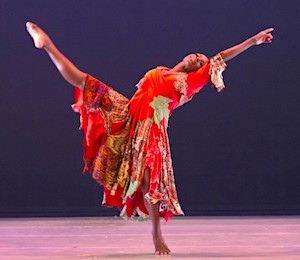
With Revelations and with his company, Alvin Ailey created a space in which to continue the struggle, she said. “Will it end today because many eyes are open? We can’t unsee George Floyd being killed. My duty is to continue the same fight. It’s still time for people to have these uncomfortable conversations, so we can continue to press forward, to run, toward our desired goal.” Which brings her to what she taught that day on Zoom.
“Wade in the Water” “takes you on a struggle to surrender to salvation, down to the river to be baptized, to proclaim ‘This is my victory,’” Boykin said. “You can’t surrender to the hatred, surrender to the anger. You have to give it up.” The baptism has transformational power, she said. “You go in like one person, and come out knowing that life has new meaning. You have to make that sacrifice daily, with a new baptism, a new awakening.”

